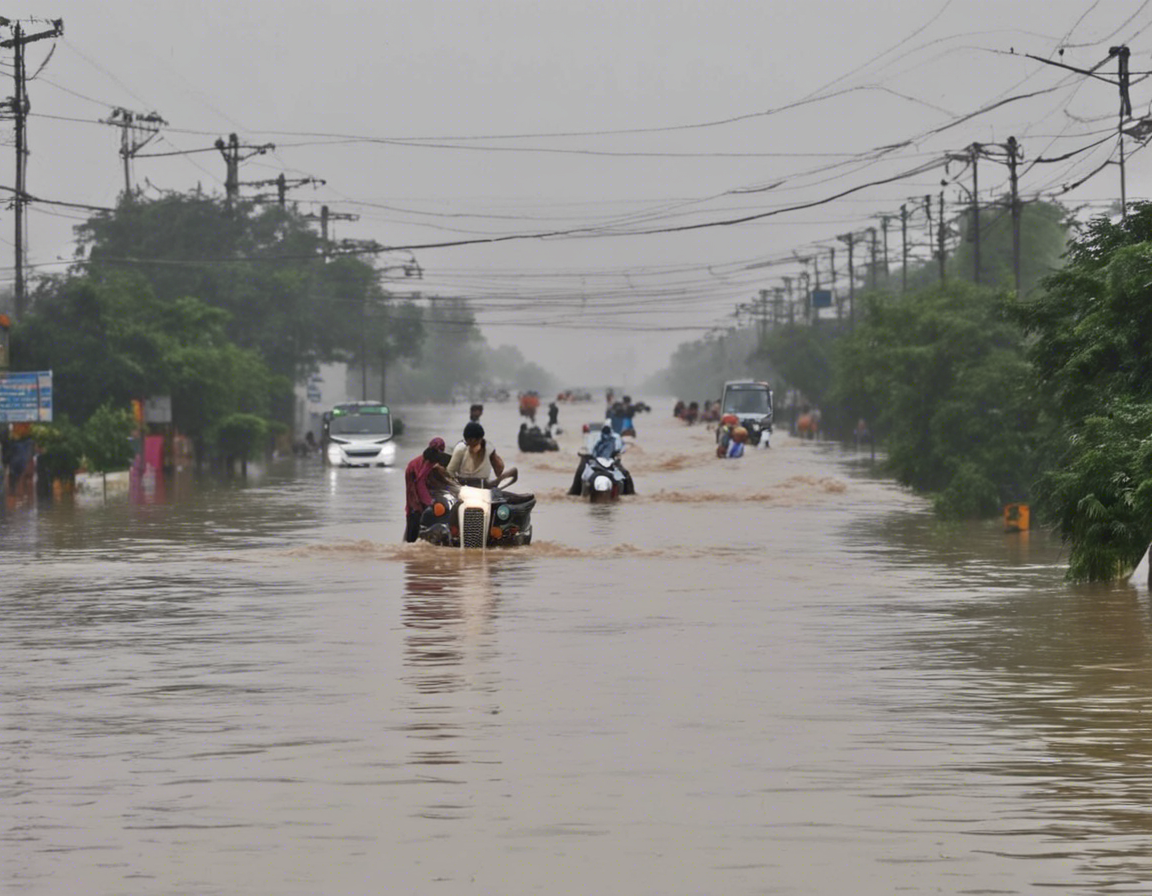Delhi Flood: Understanding the Causes and Impacts
Introduction
Delhi, the bustling capital city of India, has faced several challenges in recent years due to an increase in flooding incidents. The issue of flooding in Delhi has become a matter of concern for both the government and the residents. Understanding the causes and impacts of flooding in Delhi is crucial in order to develop effective strategies to mitigate this problem.
Causes of Flooding in Delhi
-
Urbanization: The rapid expansion of Delhi has led to the concretization of large areas, reducing the natural absorption of rainwater into the ground.
-
Obsolete Drainage System: The outdated drainage system in Delhi is unable to handle the increasing amount of rainfall, leading to water logging in several areas.
-
Encroachment of Water Bodies: Many lakes and ponds have been encroached upon for urban development, reducing the city’s capacity to hold excess water during heavy rainfall.
-
Climate Change: Changing weather patterns and increasing intensity of rainfall due to climate change have exacerbated the flooding situation in Delhi.
-
Waste Clogging Drains: Improper disposal of waste leads to clogging of drains, further aggravating the issue of waterlogging in the city.
Impacts of Flooding in Delhi
-
Disruption of Daily Life: Flooding in Delhi leads to significant disruptions in daily life, with roads becoming impassable and public transport services being hampered.
-
Damage to Infrastructure: Floods in Delhi cause damage to infrastructure such as roads, buildings, and utility services, leading to financial losses.
-
Health Concerns: Stagnant water during floods becomes a breeding ground for diseases such as dengue and malaria, posing health risks to the residents.
-
Economic Losses: The economic losses incurred due to flooding in Delhi are substantial, affecting businesses and livelihoods of the people.
-
Environmental Degradation: Flooding leads to environmental degradation, with pollutants being carried in the floodwater, affecting the ecosystem of the city.
Mitigation Strategies for Flooding in Delhi
-
Improved Drainage Infrastructure: Investing in upgrading the drainage system in Delhi to handle heavy rainfall is crucial to mitigate flooding.
-
Rainwater Harvesting: Promoting rainwater harvesting techniques can help in recharging groundwater and reducing surface runoff during heavy rainfall.
-
Floodplain Zoning: Implementing floodplain zoning regulations to restrict construction in flood-prone areas can help in preventing future losses.
-
Green Infrastructure: Increasing green spaces and developing green infrastructure such as wetlands can help in absorbing excess water during flooding.
-
Public Awareness: Educating residents about the causes and impacts of flooding, as well as promoting measures such as waste segregation, can help in mitigating the issue.
Frequently Asked Questions (FAQs)
- What role does climate change play in the increasing floods in Delhi?
-
Climate change has led to changing weather patterns, including more intense rainfall, which has exacerbated flooding in Delhi.
-
How can individuals contribute to mitigating flooding in Delhi?
-
Individuals can contribute by practicing responsible waste disposal, conserving water, and promoting rainwater harvesting at a household level.
-
Is the government taking steps to improve drainage systems in Delhi?
-
The government of Delhi has initiated projects to upgrade the drainage infrastructure in the city to better handle heavy rainfall events.
-
What are the long-term consequences of continued flooding in Delhi?
-
Continued flooding in Delhi can lead to increased infrastructure damage, health risks, economic losses, and environmental degradation, impacting the overall quality of life in the city.
-
Are there any early warning systems in place to alert residents about potential floods?
- Efforts are being made to establish early warning systems in Delhi to alert residents about potential floods and enable timely evacuation measures.
In conclusion, addressing the issue of flooding in Delhi requires a multi-faceted approach involving government intervention, community participation, and sustainable urban planning strategies. By understanding the causes and impacts of flooding and implementing effective mitigation measures, Delhi can work towards building a resilient and flood–resistant city for the future.

